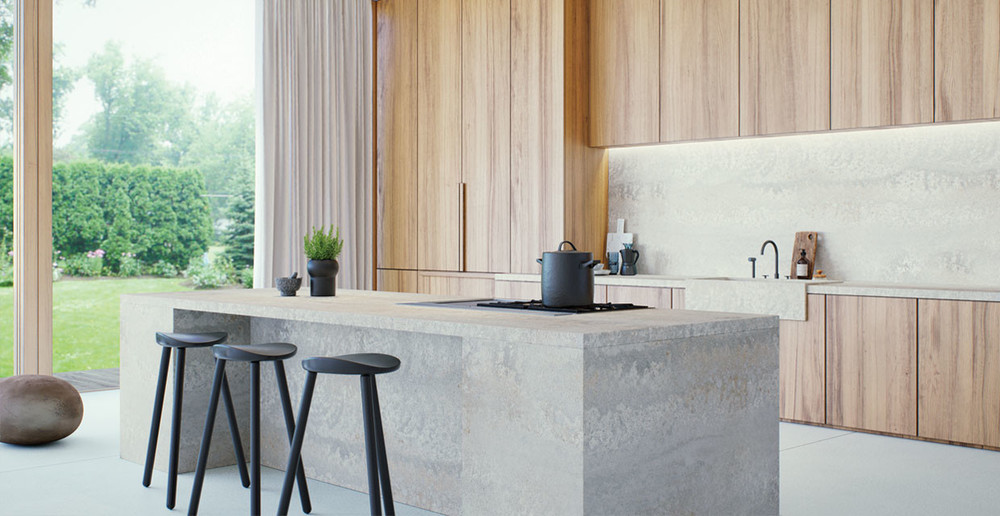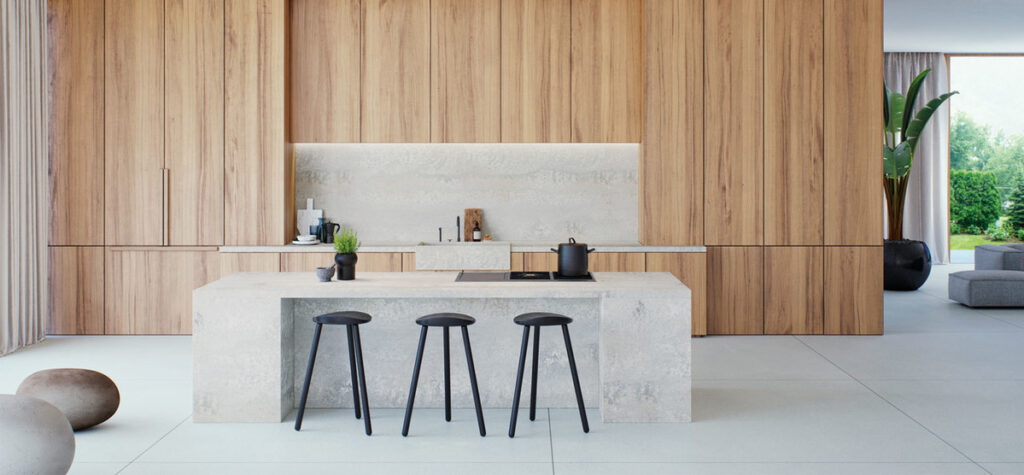Why Choose Eco Friendly-Countertops?
5 min read
One of the easiest ways to accentuate the looks in your kitchen is with a stunning countertop. Using the right countertop is not only an aesthetic consideration in your home, but it also increases the value of it. Unfortunately, most countertop materials are not eco-friendly and often come with a set of health risks, as well as, environmental degradation. Fortunately, there are a wide variety of eco-friendly countertops and you can choose your preferred type based on style, ensuring you get your stunning countertop while also preserving the environment.

Your health is paramount– Most non-eco-friendly kitchen countertops pose health risks to the users. For instance, most laminate countertops are glued to chipboards that may contain urea-formaldehyde. In the long run, this may pose a significant health risk. While you can seal your non-eco-friendly kitchen countertops to avoid toxic emissions, most sealants are not safe either.
For instance, picking natural stone, bamboo, or wood countertops may seem like such an eco-friendly move. Countertop materials such as bamboo or wood require sealing. However, regular sealing may counter the eco-friendliness of these materials.
Cut down on energy use– Getting eco-friendly kitchen countertops cuts down on energy used in production or transporting them to your location. Natural stone countertops, for example, are manufactured in specific areas globally. Purchasing these products is not eco-friendly, especially if they are transported across continents. Stone quarrying also leads to erosion on hills, leading to damage of water bodies and topsoil denudation. As such, getting locally manufactured or available products adds to the eco-friendliness of your countertops.
Durability– Durable and low-maintenance kitchen countertops are eco-friendly. Durable materials require less replacement, reducing the quantity needed to produce more over time. Quartz is highly reputed for its durability and ease of maintenance. Properly maintained, quartz countertops can last for even 15 years. And with the ease of repair, quartz is the most eco-friendly countertop material.
Make the world a better place– Most people underestimate their actions and choices towards sustainability. Opting for eco-friendly kitchen countertops is a direct contribution to making the world a better place. Saving on energy consumption, reducing degradation of natural resources, and reducing your carbon footprint are just a few ways human beings can help the planet.

It is made of an easily accessible, natural mineral– As we mentioned above, an eco-friendly countertop material should be easily available and should not disrupt nature. Quartz, being an engineered stone, is made of pure quartz, resin, and polymers. Pure quartz is an abundant natural resource, making it easily accessible at a low cost. And since quartz can also be found in other natural stone countertops such as granite, your quartz countertops could be recycling waste derived from mining other stone materials. The recycling and re-using makes it an eco-friendly countertop material.
Resistance to pathogens– Quartz is a non-porous material, making it resistant to toxic substances and even pathogens. The non-porous nature of quartz countertops ensures that the material does not harbour bacteria. While this quartz quality protects your family against bacteria, it also protects the environment in various ways.
Low maintenance– Quartz is widely renowned for its low maintenance. The ease of cleaning is also a plus for most people. To clean quartz, you just need mild soap and water. Using harsh cleaning agents is not recommended and can even erode the countertop. Most harsh cleaning ingredients are toxic for human health and the environment. Additionally, quartz does not require regular sealing, making it an eco-friendly choice.
Quartz is recyclable– While quartz is highly durable and can last a lifetime, it may require replacement once it’s finished serving its purpose. Fortunately, the discarded quartz surface can be recycled and used again to make other surfaces.
Durability– Quartz is highly durable. With regular care and maintenance (which is minimal), your quartz countertop can serve you for decades. Minimizing the constant need for replacement, repair, and resealing is what’s best for the environment.
It is as good as natural stone– Most people lean to natural stones, based on their appearance. The colours, veining, and even patterns found in natural stones are beautiful, however, given the high cost and high maintenance requirements of natural stones, quartz makes a great alternative option. And quartz is a non-quarried stone, so you get the beauty of natural stone while still conserving the environment. Quartz is also available in colours and patterns that would be impossible to replicate in natural stone.
It is resistant to heat– Most home accidents are caused by fire mishaps, so having a heat-resistant kitchen countertop is an important safety measure. While it will not prevent the fire from occurring, it will help prevent the fire from spreading. It also reduces the environmental degradation that would have otherwise occurred as a result of the fire. Considering the smoke, the unsafe fire extinguishing methods, the products used, and the health risks to your family, quartz is an ideal and eco-friendly option for a kitchen countertop.

While most people tend to choose their countertop materials based on preference, availability, and cost, it is also important to look for eco-friendly countertop materials. By doing so, you’re not only getting a durable and safe countertop material but also an environmentally friendly one. Quartz is your best option for an eco-friendly and stylish countertop material.
{{ subtitle }}
{{ i.desc }}
{{ subtitle }}
{{ subtitle }}